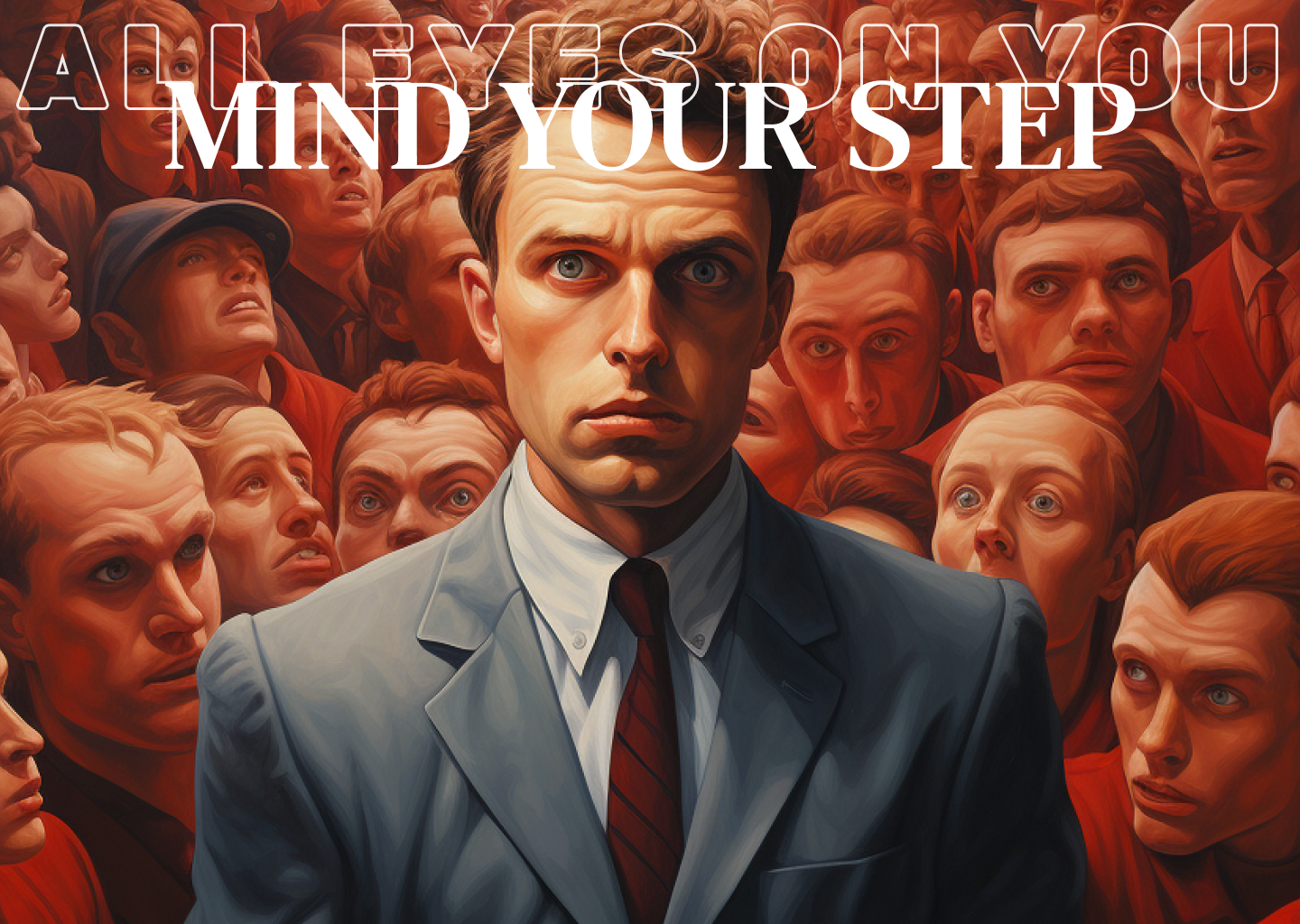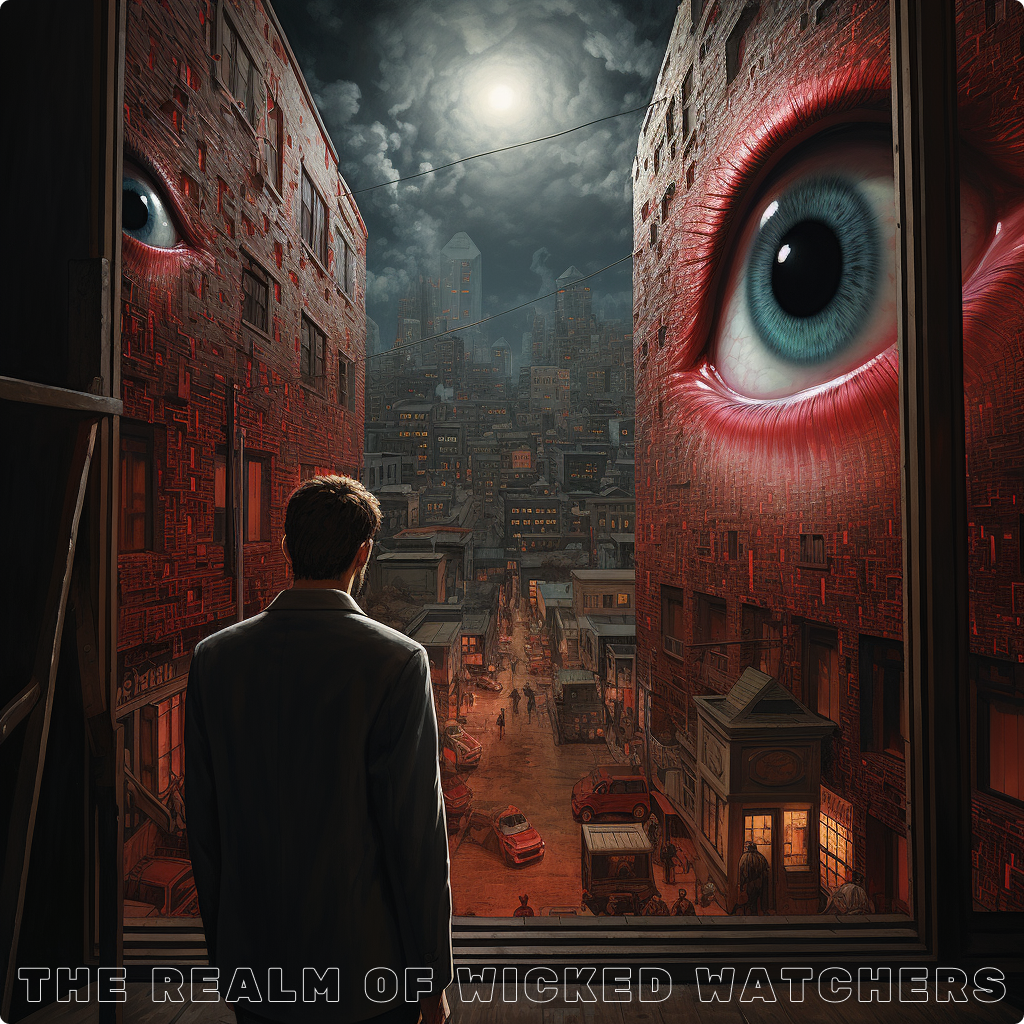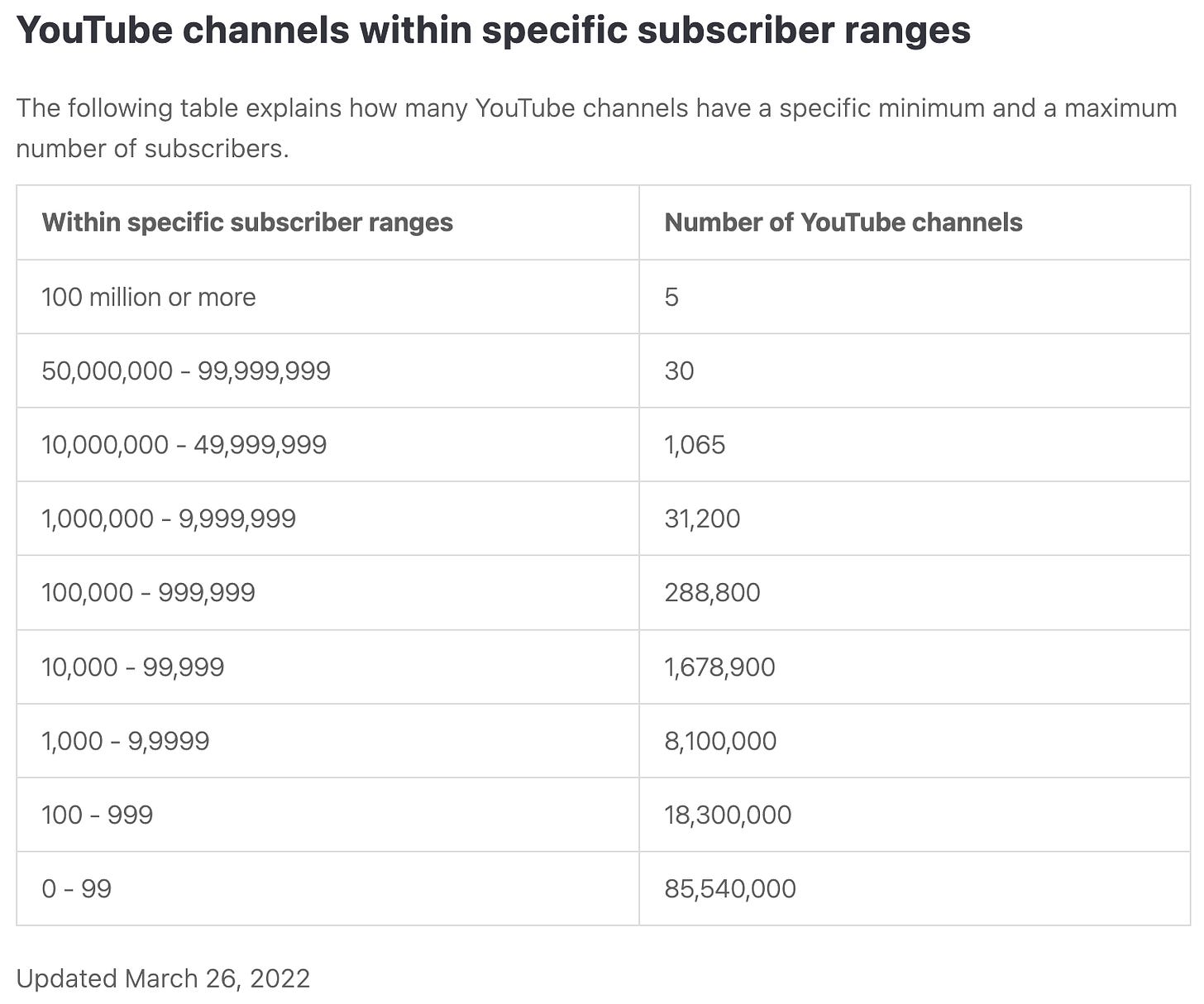🎪 Enter the World Where All Eyes Are on You
Mind your step as you enter the world where surveillance affects your morality, personality, and peace of mind.
WELCOME TO MIND YOUR STEP - ISSUE 15!
There’s a special place in hell for anyone who wishes for fame.
Or at least that’s what an old jinn buddy of mine once told me 🧞
The genies tend to be tricky hustlers. So I wasn’t surprised at the sinister smirk he had on his face as he reminisced the myriad of times he condemned fame wishers to the Realm of Wicked Watchers.
It’s a dingy dystopia where judging eyes are fixated on your every move. Each moment being broadcast to the voyeuristic eyes of your neighbours and enemies.
Blackmail, hidden spy cams, peep holes, camera hacking, secret listening devices… They’re all encouraged rites of passage.
It’s a hellscape, where privacy is hunted for sport and the billboarding of the intimate moments of others is rewarded by the government.
With the rise of micro-influencers and their audiences yearning for similar fame, the boundaries between dimensions is beginning to blur.
🔗 / Source /
As more and more people crave recognition, our world is increasingly resembling a watered-down version of the Realm of Wicked Watchers.
Paparazzi, claims that our phones are listening to us, cameras in every corner of our cities and in every citizen’s hand…
What exactly does it do to our psychology to live in an environment that seems to be under constant surveillance?
SUBSCRIBE TO MIND YOUR STEP
At the intersection of psychology and environment design, Mind Your Step is the weekly newsletter to read if you want to learn how to design spaces that influence the way people think.
🙋🏽♂️ Surveillance and The Main Character
Is believing in privacy the new delusion?
Most psych grads talking to someone feeling self-conscious will eagerly remind them about the Spotlight Effect. Where people tend to believe they’re being noticed more than they really are.
But, I’m a people watcher. So, while it’s reassuring to recognize that most people are too focused on their own worlds to take the time to reflect on ours, I also know that there are people like me out there.
People who sit on buses and benches, scoping out the people around them. Taking note of what everyone is reading, and wearing, and looking at.
And when we’re not in the vicinity of a people watcher, there’s a good chance we’re in the view of a street camera. Or the surveillance camera in a nearby shop. Or, especially true for those of us who live in a big city, the view of the lens of the dozens of tourists or tik tokers around us.
And when we’re not in the vicinity of a person with a camera, we are the person holding the camera. Whether it be in our computers or in our phones. We cover our webcams and question the prying ears of the smartphones we believe are listening to our conversations.
After the movie The Truman Show came out in 1998, some people started identifying with Jim Carrey’s character. They believed that they too were the main character in a tv show. That the world around them was an elaborate production set and that they were constantly being watched.
While not considered to be a new diagnosis, this Truman Show Delusion was thought to be a variance on known persecutory and grandiose delusions. But in a modern day society where a lot of us are actually often being filmed and watched, is the Truman Show Delusion a delusion anymore?
I wonder if nowadays the true delusion is going outside and believing in complete privacy? Could it be the case that believing in the Spotlight Effect is the modern day delusion?
❤️🔥 Surveillance and Better Behaviour
Are we better people when we’re being watched?
There’s a phenomenon in psychology known as the "watching-eye effect". It describes how the visible presence of images depicting eyes nudges people towards slightly, but measurably more honest and more pro-social behaviour 🔗 / Study /.
But that got me wondering, what about reality TV?
So many of the people we see on reality shows often seem like outrageous caricatures. Ethical behaviour doesn’t usually seem like a top priority.
Are we better performers when we’re being watched?
Surveillance doesn’t augment the ethical behaviour of reality stars, but maybe knowing that they are immersed in a filmed environment, they produce the behaviour that they think the eyes watching them want to see?
But then that got me wondering…
If that was the case, then why do so many of us nervous public speakers fail to meet ours and others’ expectations when we’re on stage? Shouldn’t the watching eyes make us perform better, considering that’s the ideal scenario most watchers want?
Turns out, psychology’s got a theory for that: social facilitation and inhibition — where the presence of others can lead to either enhanced or hindered performance, depending on the task at hand. For simple or well-learned tasks, people tend to perform better in the presence of others. That’s social facilitation. However, for complex or novel tasks, the presence of others can lead to impaired performance, known as social inhibition.
So perhaps, a better question to ask ourselves is what can I become better at by being watched?
Perhaps, the watching-eye effect and social facilitation can be combined to build us up.
Maybe all we need to do to level up in our current goal is to tape a poster of a pair of eyes near our training zone.
🙇 Surveillance and Public Shaming
How have spaces been designed to augment ethical behaviour?
Knowing about the watching-eye effect, it’s not uncommon to find creative surveillance strategies incorporated into the design of spaces.
I mentioned in a previous issue the design of panopticon prisons.
“Jail cells lined along a circular perimeter.
Guards posted in a watchtower in the centre of the ring.
A 360 degree vantage point with a clear view into each and every cell.
…
The interior of the watchtower, however, is veiled. And prisoners are unable to see the guards inside.
The (potentially) watchful eye of a panopticon prison is designed to shackle both the body and the mind. Prisoners know they could be being watched at any given moment, but they can never know when.”
🔗 / Mind Your Step Issue 7 /
Symbolic of the watchful eyes in the watching-eye effect, some storefronts opt for a public shaming strategy by taping snapshots of the faces of people who’ve stolen from them onto their front door. A not-so-subtle reminder that we’re all being watched when in their store.
Similar public shaming strategies have even been incorporated into city designs.
Cities in four Chinese provinces, for example, have shamed jaywalkers by posting their personal information on public screens using facial recognition to trace the identities of jaywalkers. Cameras take several snapshots of errant pedestrians, as well as a 15-second video which is then displayed on a large screen. Facial recognition software matches the faces of these offenders with those in a provincial police database. A police officer then checks them for their accuracy, and if they pass muster, the offender's photograph and personal information (like portions of their ID number and home address) gets displayed. 🔗 / Article /
In a world with daily uploads of public freak outs and Karen callouts, I find the people who don’t seem to be affected by the watching eye effect particularly interesting.
Are they completely immune to the social pressures of their environment or are there still some undiscovered environmental interventions that can be used to augment ethical behaviour?
😶🌫️ Surveillance and Sense of Privacy
There’s a sort of serenity I seem to find in solitude.
I’m not sure if it’s a universal feeling.
It’s most apparent when I’ve found a lonely pocket outside in the big city. Away from everyone and yet surrounded by everyone.
Sometimes I even notice it when I’m by myself in large crowds. I start to think about how anonymous I am within the crowds of people. An island surrounded by waves of rushing passersby.
I wonder what emotions and psychological states private spaces make us feel?
Do our surroundings play a role in determining when we feel lonely when we’re alone vs when we feel serenity in solitude? Or is that solely a consequence of our personality or current scenario?
Last month I watched the show Jury Duty.
It’s a modern day Truman Show where an unwitting participant was placed into what he thought was the position of a juror on a real court case. What he didn’t know was that he was the main character in a show and that everyone around him were all actors.
The show got me thinking about what happens to our thoughts and behaviours when we’re immersed in an environment under surveillance.
Arisa Cox, Canada’s Big Brother host, always ends her live episodes by reminding the audience that “someone is always watching”. And maybe it’s true. Or at least, maybe it’s becoming the default perspective.
And if that’s the case, then maybe the world is our stage and we should live life like we’re the main character. Assuming that all eyes are on us and acting accordingly.
ENJOYED THIS ISSUE?
I’ve got an agreement with the genie community so that people who click the ❤️ button are exempt from the Realm of Wicked Watchers 🙌 So enjoy your wish for fame, free of crooked contingencies!







Very thougthful, Lamar. I wonder how does the design of a Space Where All Eyes Are On You affect your confidence and diligence / morality. In a courtroom where the doors are transparent and the gallery is open for the public, does it matter if a judge sits on a podium and in a chair with a high backrest? Does it matter if a lector has a tribune in an auditorium? And in a modern individual offices with glass walls, desks often face the entrance, with the computer screens hidden from the view and facing the windows (contrary to what is recommended for eye care). The balance of privacy and transparency, supremacy and equality, solitude and community in the design. These are the questions that I pose to myself after reading your post.